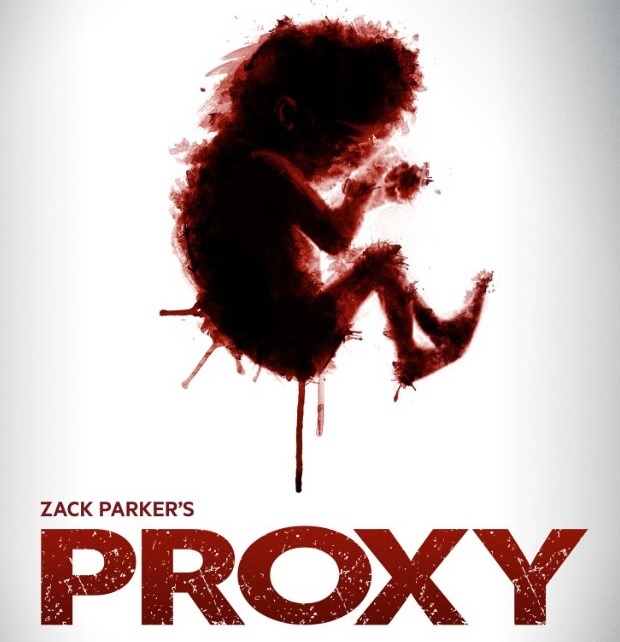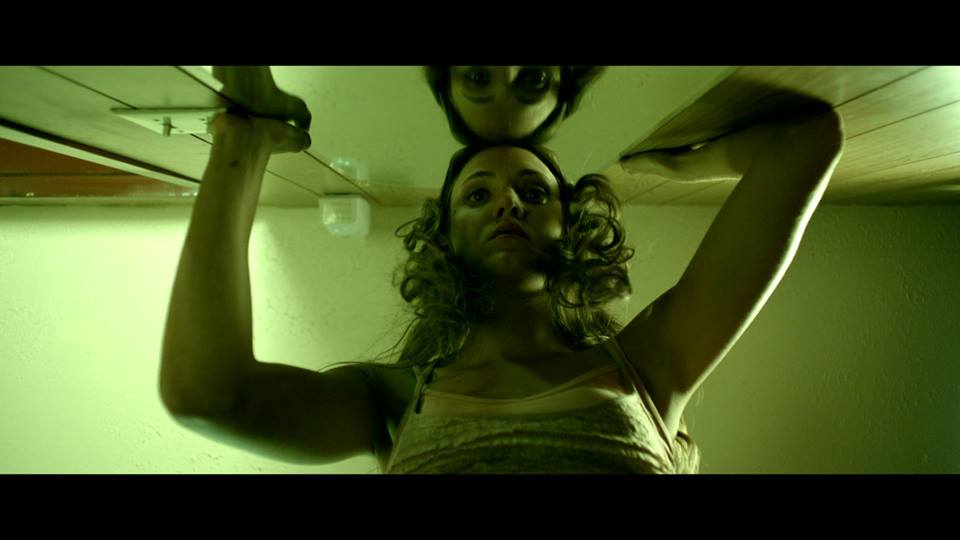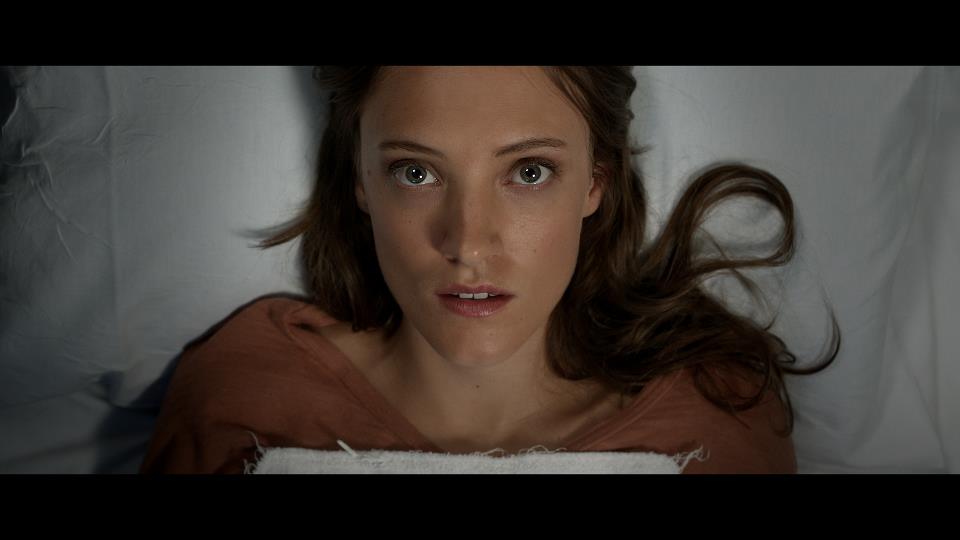The Mechanics of Grief in “PROXY”
Zack Parker’s pitch-black psychothriller PROXY was one of my favourite premieres of last year’s Toronto International Film Festival. The tale begins with the violent attack of a pregnant woman in midday, followed by the loss of the baby and the dazed mother’s enrolment in grief counselling. There, she order cheapest propecia online meets another bereaved woman and as the two exchange stories, a bond is created. But soon we find that appearances are not what they seem, and viagra online australia both women will use each other for the darkest of purposes.
Responses to the film were highly divisive, with many critics -including some whose tastes I usually share – finding its histrionics a bit overbearing , its neuroses too pronounced, its score too bombastic. But for me these were among the things that made the film unforgettable. Its intensity never let up, and while its extreme characterizations could be interpreted as camp, I preferred to take them at face value, to allow them to imbue the film with internet pharmacy propecia horror instead of comedy. I fell in love with the film instantly, from cheap discount levitra its first brutal alleyway attack to its blood-soaked denoument, and the blistering mess of psychosis that came between. There are moments of tremendous brilliance in this film, a score that recalls the classic string-heavy thriller tradition, and some seriously brave performances, including Spec Op fave Joe Swanberg, who’s been making major waves as an actor over the last year in addition to his own directorial work.
PROXY will be released in the US by IFC Midnight in April of this year, but will be making a stop at the 16th annual SF IndieFest on February 16th and 20th (details and tickets HERE), so if you are in the Bay area be sure to check it out, along with our exclusive interview with director Zack Parker levitra generic ordering below.
When I first contacted you I mentioned that if your film had come out when I was still writing my book HOUSE OF PSYCHOTIC WOMEN, it would have been an essential inclusion. Specifically it would have been a great case study for a contentious statement I make about women who enjoy “surviving things”; that there can be something of an egotistical value to enduring hardship. Your film kind of takes this issue head-on. Can you talk about the genesis of the story and what led you to tackle such a controversial subject?
A big part of where this story comes from is the fact that both Kevin Donner and I are stay-at-home dads. So, we have been kind of been immersed through playgroups, birthday parties, etc., in this fascinating world of young women and their transitions into parenthood. We are a generation now that has grown up a bit spoiled, a bit coddled. So, there is a sense of identity loss that can happen when you bring this new life, and often times, overwhelming responsibility into your world. We felt this hadn’t really been portrayed in cinema yet.
What specifically led to you to explore this story from a female perspective? Poor Swanberg is like the victim of a female conspiracy!
I certainly don’t think I am trying to make a statement about women, I just tend to find women more interesting to watch than men. They possess a certain level of complexity, both emotionally and through certain social interactions, that men just don’t have. Also, I knew this would be a film about damaged people doing pretty horrendous things, and that’s just something audiences don’t tend to expect from female characters.
But there are over 200 such characters covered in my book alone! And it’s actually a criticism many people have against horror, that all the women are crazy, therefore bolstering the idea that horror films are sexist etc…so it’s really interesting to me that this is not your experience of horror. What horror films can you think of that have male characters that could be counterparts to the women in your film?
Well I’m certainly not denying that female characters doing terrifying things in films doesn’t exist. I just don’t think the majority of audiences go in as suspicious about them as men, who are considered by most to be the more aggressive and dangerous of the two sexes. In terms of male counterparts, someone like Norman Bates or Travis Bickle come to mind, though through different means and tones. Both are broken men who possess a warped personal motivation to do what they think it right or just. One could even say that John Cassavetes’ character in ROSEMARY’S BABY is an incredibly selfish character using horrific means to achieve a personally rewarding result.
Let’s move from the abstract to the specific –do you feel there are people who fetishize the rituals surrounding grief? What do you think the appeal would be of doing this? Pre-emptive control?
Well, we all crave love and attention. One could argue those are the reasons we do anything in life. I can see how someone could become addicted to sympathy. It’s just unfortunate that you generally have to face tragedy first to receive it.
I love Swanberg’s line “How should the father of a dead son look?”, because there’s so much about propriety and expectation being questioned in the film. About the ‘right way’ to grieve. There is so much judgement thrown around about the grieving, in terms of when and how it is acceptable, it seems almost regulated, it’s totally bizarre. Am I off on a tangent or do you get what I mean?
You’re absolutely right. We all grieve in different ways: healthy, unhealthy, internally, externally. I believe that Joe’s character is actually dealing with his grief in the healthiest of ways. It’s aggressive and obsessive, but much more on the path to mental stability than the women surrounding him.
I know it’s deliberately ambiguous in the film, but did the actresses make up any back-stories for their characters – or did you provide any – that identified the source of their neuroses?
I had pretty extensive one-on-one conversations with each of them about where their characters came from. Of course I had my ideas, but I feel I gave them a lot of room to create their own interpretations.
There’s also – as reflected in the title –the idea of manufactured substitutes in every character – people stand in for friends, lovers, parents, children, victims and abusers. It causes kind of a domino effect in the film. How did you come up with the film’s complex psychological structure?
Structure in general is something that really interests me, especially when it comes to storytelling. I feel that audiences have become quite savvy when it comes to watching films. Generally, within the first 15 minutes of a film, you have a pretty good sense of what the story is going to be; the tone, who the characters are, and how their relationship dynamics will work. PROXY is kind of a response to this. To hopefully use the audiences expectations against them. To keep them guessing, surprised, and therefore engaged throughout the duration of the picture.
A few people have referred to the film as “DePalma-esque”, but I think a lot of this is in the score being reminiscent of Pino Donaggio. (I think it’s also relevant here that Donaggio did the score for Roeg’s DON’T LOOK NOW, which also explores the intersection of grief and delusion). The score for PROXY really was a great return to classical suspense scoring, complete with bombastic flourishes that I really appreciated. Tell me about the score and how it came about.
Well the comparison is very flattering, in both regards. The Newton Brothers have actually scored all of my films to date. They are brilliant guys and I honestly can’t imagine doing a film without them. In my mind, our work has become very tightly intertwined. This was my first time having access to a full live orchestra, so I really wanted to use that. We had a lot of conversations about giving each of the four lead characters their own themes, and specifically where to use those themes. They each have their own distinct and contrasting personalities, and the score needed to reflect that.
Also, I never am a fan of music just filling up the background. I think it should be used in very precise places, and at those places be the driving force. I will almost never use score and dialogue at the same time, that’s almost like having two people talking over each other. Score is a voice, another character, and it needs to be heard.
****
Like PROXY on Facebook HERE

 February 4, 2014
February 4, 2014  No Comments
No Comments







